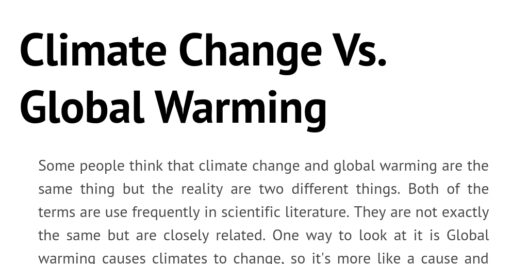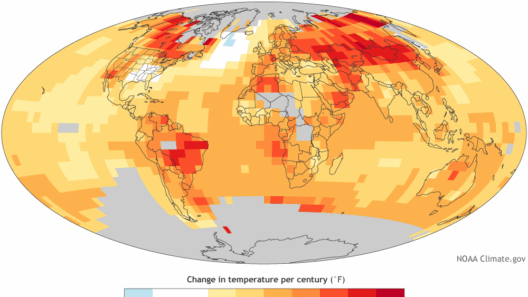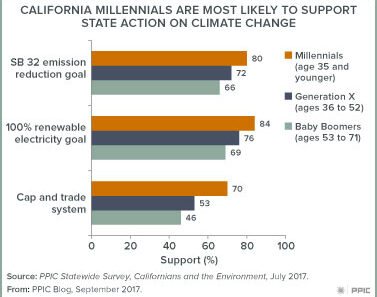In the complex and ever-evolving discourse on climate change, the perspectives of public figures are often scrutinized and debated. This is particularly true for celebrities, whose platforms can dramatically amplify their beliefs and influence the public’s perception of pressing environmental issues. One intriguing facet of this phenomenon is the stance of Clive Cussler, a renowned author celebrated for his adventurous fiction. While he captivated audiences with thrilling narratives featuring maritime escapades and treasure hunts, his views on global warming remain a subject of curiosity.
Cussler’s literary oeuvre, though predominantly fictional, often intertwines with themes of environmental degradation and the consequences of human indifference. His works reflect an awareness of the world’s ecological plight. However, determining whether he explicitly believes in global warming can be a nuanced endeavor. Public figures frequently navigate the dichotomy between their artistic expression and personal convictions, leading to a divergence in the message they choose to propagate. This is particularly pertinent in the case of Cussler, whose stories frequently unveil the rare beauty of nature juxtaposed with human exploitation.
The primary question remains: does Clive Cussler embody the beliefs he weaves into his narratives? While he has not been overtly vocal in mainstream media regarding climate change, his writings have gradually hinted at an underlying recognition of environmental challenges. Nautical expeditions, the threat of rising sea levels, and the repercussions of pollution thread through his plots, framing a cautionary tale that mirrors reality. This raises an intriguing observation about how artists convey their understanding of global crises and how this might align with personal beliefs.
Moreover, the phenomenon of celebrities engaging in environmental advocacy often reflects a broader societal trend. Many public figures utilize their prestige to highlight climate change, leveraging their influence to draw attention to scientific consensus and promote sustainability. Celebrities such as Leonardo DiCaprio and Jane Fonda have emerged as staunch advocates for environmental causes, utilizing platforms to educate and inspire action. This proactive stance contributes to a larger narrative, emphasizing the importance of celebrity involvement in fostering public discourse on climate change.
However, the commitment of celebrities like Cussler can provoke skepticism. Critics may argue that their apparent advocacy lacks fervor unless accompanied by consistent action and a clear stance on global warming. This skepticism raises essential questions about authenticity. Are celebrities merely hopping on a bandwagon for clout, or do they sincerely believe in their cause? In Cussler’s case, the context of his environmental reflections invites deeper contemplation on the role of fiction in shaping perceptions about climate issues.
Cussler’s narratives focusing on the fragility of marine ecosystems, the ramifications of oil spills, and the potential for technological advancements in combating pollution could be interpreted as subtle commentaries on contemporary environmental challenges. This culminates in a layered understanding of how literature may serve as both an escapist venture and a powerful vehicle for awareness. The stories can provoke thought and inspire readers to consider their environmental footprint, even if the author refrains from engaging directly in the public conversation about global warming.
The underlying reasons for the fascination with celebrity viewpoints on climate issues can often be attributed to the symbolic nature of celebrity culture itself. Celebrities serve as modern-day mythmakers, embodying ideals and values that resonate with the public. When these figures champion climate advocacy, they transform an abstract issue into a palpable cause. The emotional and aspirational attributes tied to celebrity influence encourage fans to become more engaged in environmental issues. There exists an inherent desire to reconcile the glamour associated with fame and the grave reality of climate change.
This duality of celebrity culture can manifest in various ways. Some individuals may view the involvement of their favorite stars in climate advocacy as an empowering endorsement of their own beliefs, potentially galvanizing them to take action. Conversely, others may perceive it as disingenuous, laced with a facade that distracts from the complexities of the issues at hand. Navigating this dual perception can be challenging, but it underscores the importance of critical engagement with the messages conveyed by public figures.
As societal awareness of climate change surges, the conversation about celebrity involvement will continue to evolve. The juxtaposition of fiction and reality, particularly in the works of authors like Cussler, beckons an exploration of how storytelling can elucidate pressing environmental matters. The moral imperatives embedded in narratives can cultivate a sense of responsibility, urging readers to reconcile their own lifestyles with the urgent demands of a changing planet.
In conclusion, while Clive Cussler’s beliefs on global warming may not be overtly articulated, his literary contributions prompt reflection on the intricate relationship between fiction, celebrity culture, and climate advocacy. The fascination with celebrity perspectives on climate change reflects a broader cultural phenomenon, where the allure of fame intersects with the imperative for environmental stewardship. Ultimately, the synthesis of storytelling and celebrity engagement may serve as a compelling catalyst for elevating public discourse and action on climate change, steering society toward a more sustainable future.








